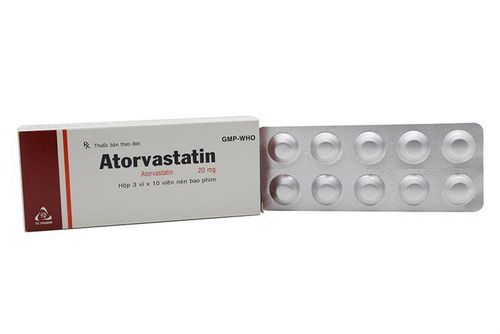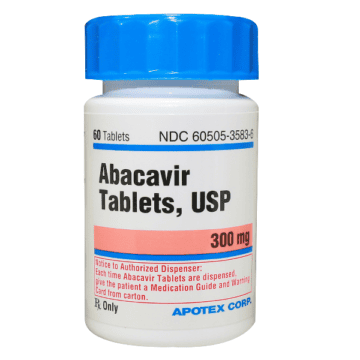This is an automatically translated article.
Having a family history of heart disease makes you more likely to develop heart disease on your own. In some cases, having a family member with heart disease at a young age (age 50 or younger) can be a sign of familial hypercholesterolemia, an inherited disorder that causes high cholesterol.
1. Family history of heart disease
If you have a family history of heart disease, you are more likely to develop heart disease yourself. Different types of heart disease and related conditions such as high blood pressure and high blood cholesterol can run in families. Knowing your family health history of heart disease and related conditions is one of the first steps you can take to prevent heart disease and future heart attacks.
Tell your doctor if your parents, sisters, brothers, children, grandparents, aunts, uncles, or grandchildren have or have ever had:
Heart conditions: Coronary artery disease , Atherosclerosis, Heart attack, High blood cholesterol, Angina (pain caused by pressure or tightness in the chest), Arrhythmias such as atrial fibrillation, Cardiomyopathy, Congenital heart defects, Heart failure,. .. Aneurysm Stroke Diabetes High blood pressure Pacemakers Percutaneous coronary intervention (PCI) (also called angioplasty) with or without stents. Coronary bypass surgery or other heart surgery. Based on this information, your doctor can recommend steps to prevent or treat heart disease. If you have been diagnosed with heart disease or related conditions, it is important to inform your family members.
2. Tips for gathering your family history of cardiovascular diseases
Take the time to gather your family history of heart disease and share this information with your doctor and other family members. Your doctor can help you take steps to reduce your risk of heart disease.
Some tips to help you collect family history:
Your family includes your father, mother, sister, brother, child, grandfather, grandmother, grandchild, aunt, uncle, grandchild Make sure you have checked including both your mother's and father's family sides. Note which relatives have had heart disease including hereditary heart disease and related conditions or procedures and the age at which they were diagnosed or treated. List the age and cause of death of the deceased relative. Share your family health history with your doctor and family members. Update your family health history regularly and keep your doctor informed of any new diagnoses, conditions, or treatments. If you are concerned about your personal or family history of heart disease, talk to your doctor. If you or your family members have very high cholesterol levels or have had a heart attack or heart disease at a young age, you may have a history of familial hypercholesterolemia.

Bạn nên chia sẻ tiền sử gia đình về bệnh lý với bác sĩ
3. Controlling Heart Disease Risk Factors
While family history is important, it's not your own. Genetics is just one factor in a long list of risk factors. And that's good news, because many of those factors are things you can control.
You can't change your family history, but you can take steps to change other factors. These lifestyle changes will help protect your heart:
Avoid smoking: Smoking is one of the worst things you can do for your heart. Smoking in any form is a bad idea if you use it, so quit. Limit alcohol: Have you heard that red wine is good for the heart? Whatever beverage you choose, moderation is important. “Moderate” consumption is no more than two drinks a day for men and just one drink for women, so keep an eye on your alcohol intake. A healthy diet: Some experts recommend a Mediterranean-style diet that focuses on fruits, vegetables, whole grains, nuts, and olive oil. This diet includes some fish and poultry, but limits red meat, dairy products, processed meat, and sugary foods. Exercise: Get at least 30 minutes of moderate aerobic activity, five days a week. Or find an activity that you love and it will be a lot easier for you to get into the field. Control your blood pressure and blood fats: Both high blood pressure and high cholesterol levels increase your risk of heart attack. You can control them with lifestyle changes and in some cases medication. Lose Weight: If your family history puts you at risk for a heart attack, it's the perfect excuse to stay at a healthy weight.
You need to stop blaming your mom or dad and take action for your best health instead.
Around the world, major cardiology institutes/centers always have a unit dedicated to metabolic cardiomyopathy. According to that model, Vinmec International General Hospital is the first hospital in Vietnam to apply the metabolic cardiovascular syndrome screening model according to the 4P philosophy (proactive, predictive, preventive, individualized). and manage patients with metabolic cardiovascular syndrome according to a service line (service line) with the connection of many specialists such as endocrinology - diabetes, cardiology, nephrology, nutritionist, fitness specialist. With such a model, patients will be consulted for screening and control right from the pre-disease stage, applying individualized intervention models for each individual. individual. As for those who already have complications, the patient will be diagnosed, classified according to the protocol, sent to the necessary specialties from which to be treated comprehensively. Therefore, cardio-metabolic patients who come to Vinmec Hospital will receive more effective disease management, treatment and care, and the ultimate goal is to improve the quality of life as well as prevent complications for patients. patient.
Please dial HOTLINE for more information or register for an appointment HERE. Download MyVinmec app to make appointments faster and to manage your bookings easily.
References: cdc.gov, heart.org, health.clevelandclinic.org












